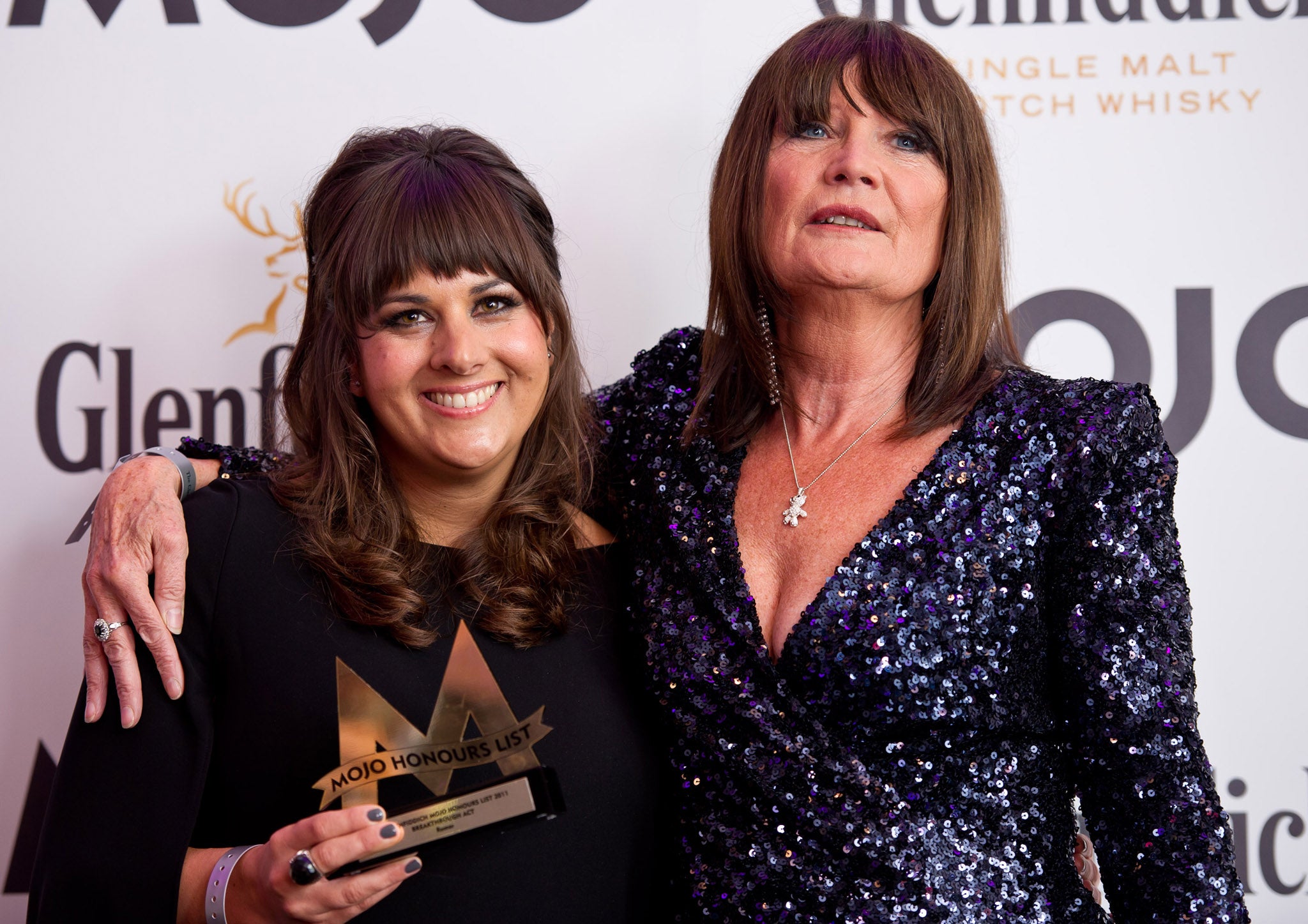Sandie Shaw hits out at music industry dominated by Simon Cowell

Your support helps us to tell the story
From reproductive rights to climate change to Big Tech, The Independent is on the ground when the story is developing. Whether it's investigating the financials of Elon Musk's pro-Trump PAC or producing our latest documentary, 'The A Word', which shines a light on the American women fighting for reproductive rights, we know how important it is to parse out the facts from the messaging.
At such a critical moment in US history, we need reporters on the ground. Your donation allows us to keep sending journalists to speak to both sides of the story.
The Independent is trusted by Americans across the entire political spectrum. And unlike many other quality news outlets, we choose not to lock Americans out of our reporting and analysis with paywalls. We believe quality journalism should be available to everyone, paid for by those who can afford it.
Your support makes all the difference.Sixties singer Sandie Shaw has complained that some of the best music is going unheard because artists who do not have the kind of privileged background enjoyed by Mumford & Sons are struggling to make it.
Shaw, 66, who had a huge hit with "(There's) Always Something There To Remind Me", hit out at banks and record companies for not doing enough for musicians from poorer backgrounds.
She told the Culture, Media and Sport select committee that the industry was dominated by "Simon Cowell-type stuff" with the artists as "mere puppets".
Her comments come after chart-topping folk band Mumford & Sons, who went to fee-paying schools, have had huge success in the US.
Shaw said: "Finance is the biggest barrier for emerging artists.
"At the moment, unless you're Mumford & Sons and come from a public school and have a rich family that can support you, you're on the dole and you're trying to work and by the time you get a sniff of a record contract you just grab anything that they might offer you."
Shaw, who won the Eurovision Song Contest in 1967 with "Puppet On A String", said emerging artists needed help so they could negotiate on "fair grounds with record companies".
"Banks do not lend money to creators ... and they don't know how ... they know nothing about creators," she said.
Shaw told MPs: "So many artists are disadvantaged. They cannot start because of their background and the best music comes from those in challenging backgrounds, it comes from Glasgow, Manchester, Essex, it comes from places and people that are really struggling to make some meaning out of their existence.
"So all we're getting is a load of Simon Cowell-type stuff that is being paid for and owned by people and the artists are just mere puppets."
When an MP asked Shaw about Oscar-winning singer Adele, who is from a working class background and complained about paying 50% tax in a magazine interview, Shaw said: "She's a great ambassador for British music. We should support Adele. We shouldn't be attacking her.
"An artist is really, really lucky if they have three years. They're exceptionally lucky if they have five years. They're a living legend if they get 10 ... the money comes in fits and starts ... I can talk from experience here."
Shaw, who made her name by singing barefoot on stage but had corrective surgery on her famous feet in 2007, bemoaned the loss of UK record companies, saying: "They all belong outside here. They've all become multinationals. Why haven't we got a record business here? It's outrageous."
Asked about musicians making money from other sources, the former singer, who is chairwoman of the Featured Artists Coalition, which campaigns for UK performers' and musicians' rights, said: "If you're a young, slim girl you can get lots of branding.
"If you happen to be big or not so young ... it's stopping people from being who they are. Why do they have to be clothes dollies?
Film composer David Arnold, who scored five James Bond films, told MPs: "Every time anyone brings up Elton John's flower bill it does everyone a huge disservice because it's not like that for anyone apart from Elton John."
Pop superstar Sir Elton was reputed to have spent £293,000 on flowers in one year during the 1990s.
PA
Join our commenting forum
Join thought-provoking conversations, follow other Independent readers and see their replies
Comments